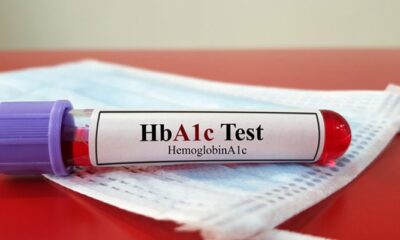Blood sugar control is essential for maintaining overall health. Chronic imbalances can lead to serious health conditions like diabetes, heart disease, and stroke. Diet plays a crucial role in managing blood sugar levels. In recent years, plant-based diets have gained significant attention for their potential to promote healthy blood sugar control. This article explores the science behind plant-based diets and their impact on blood sugar regulation.
Understanding Blood Sugar Control
Blood sugar, also known as blood glucose, is the primary source of energy for our cells. The body tightly regulates blood sugar levels through a complex interplay between hormones like insulin and glucagon. Insulin, produced by the pancreas, helps cells absorb glucose from the bloodstream, lowering blood sugar levels. Conversely, glucagon prompts the liver to release glucose into the bloodstream, raising blood sugar levels when needed.
When this balance is disrupted, blood sugar levels can become chronically high (hyperglycemia) or low (hypoglycemia). Hyperglycemia is a hallmark of diabetes, a condition where the body either doesn’t produce enough insulin or becomes resistant to its effects.
Plant-Based Diets and Blood Sugar
Plant-based diets prioritize whole plant foods like fruits, vegetables, legumes, whole grains, nuts, and seeds. These foods are generally lower in glycemic index (GI), a ranking system that indicates how quickly a food raises blood sugar levels. Lower GI foods promote a more gradual rise in blood sugar, reducing the strain on the body’s insulin production system.
Here’s how specific components of plant-based diets can benefit blood sugar control:
- Fiber: Rich in dietary fiber, plant-based foods slow down the absorption of glucose into the bloodstream, preventing spikes in blood sugar levels. Fiber also promotes gut health, which can positively influence insulin sensitivity.
- Whole Grains: Unlike refined grains, whole grains are packed with fiber, complex carbohydrates, and essential nutrients. They provide sustained energy release, preventing blood sugar crashes.
- Legumes: Lentils, beans, and chickpeas are excellent sources of plant-based protein and fiber. They promote satiety and help regulate blood sugar levels.
- Healthy Fats: Plant-based sources like nuts, seeds, and avocados provide healthy fats that can improve insulin sensitivity and overall cardiovascular health.
Benefits of Plant-Based Diets for Blood Sugar Control
Research suggests that plant-based diets offer several advantages for blood sugar management:
- Improved Glycemic Control: Studies have shown that plant-based diets can significantly improve glycemic control in individuals with type 2 diabetes and prediabetes. They can lower HbA1c levels, a long-term marker of blood sugar control.
- Reduced Risk of Type 2 Diabetes: Plant-based diets may help prevent the development of type 2 diabetes by promoting healthy weight management, improving insulin sensitivity, and reducing inflammation.
- Weight Management: Plant-based diets are often lower in calories and fat compared to omnivorous diets. This can contribute to weight loss or maintenance, a crucial factor in blood sugar control.
- Improved Heart Health: Plant-based diets are typically rich in fruits, vegetables, and whole grains, which are linked to a lower risk of heart disease, a common complication of diabetes.
Plant-Based Dietary Approaches for Blood Sugar Control
There are various plant-based dietary approaches that can be beneficial for blood sugar control. Here are a few examples:
- Whole-Food, Plant-Based Diet: This approach emphasizes consuming unprocessed or minimally processed plant-based foods in their whole form.
- Mediterranean Diet: This heart-healthy diet incorporates plenty of fruits, vegetables, whole grains, legumes, and healthy fats from olive oil.
- Dash Diet: Designed to lower blood pressure, the DASH diet emphasizes fruits, vegetables, whole grains, and low-fat dairy products, with limited red meat, processed foods, and added sugars.
Important Considerations for Plant-Based Blood Sugar Management
While plant-based diets offer numerous benefits, there are some crucial factors to consider for optimal blood sugar control:
- Nutrient Adequacy: Ensure adequate intake of essential nutrients like vitamin B12, iron, and vitamin D, which may be lower in certain plant-based diets. Consult a registered dietitian for personalized guidance.
- Processed Plant-Based Foods: Limit processed vegan foods high in added sugars, refined carbohydrates, and unhealthy fats. Prioritize whole, unprocessed plant foods.
- Blood Sugar Monitoring: Regularly monitoring blood sugar levels, especially for individuals with diabetes, is crucial to adjust dietary strategies as needed.
Conclusion
Plant-based diets offer a compelling approach to promoting healthy blood sugar control. The abundance of fiber, complex carbohydrates, healthy fats, and essential nutrients in plant-based foods provides a foundation for regulating blood sugar levels and reducing the risk of diabetes and other chronic health conditions. By carefully planning, incorporating a variety of whole plant foods, and potentially seeking professional guidance, you can harness the power of plant-based eating for optimal blood sugar control and overall well-being.

 Diabetology2 weeks ago
Diabetology2 weeks ago
 Diabetology2 weeks ago
Diabetology2 weeks ago
 Diabetology1 week ago
Diabetology1 week ago
 Diabetology1 week ago
Diabetology1 week ago
 Diabetology1 week ago
Diabetology1 week ago
 Diabetology2 weeks ago
Diabetology2 weeks ago
 Diabetology1 week ago
Diabetology1 week ago
 Diabetology2 weeks ago
Diabetology2 weeks ago








